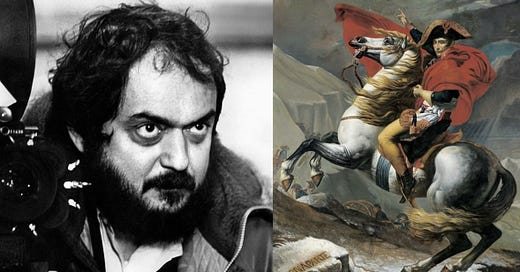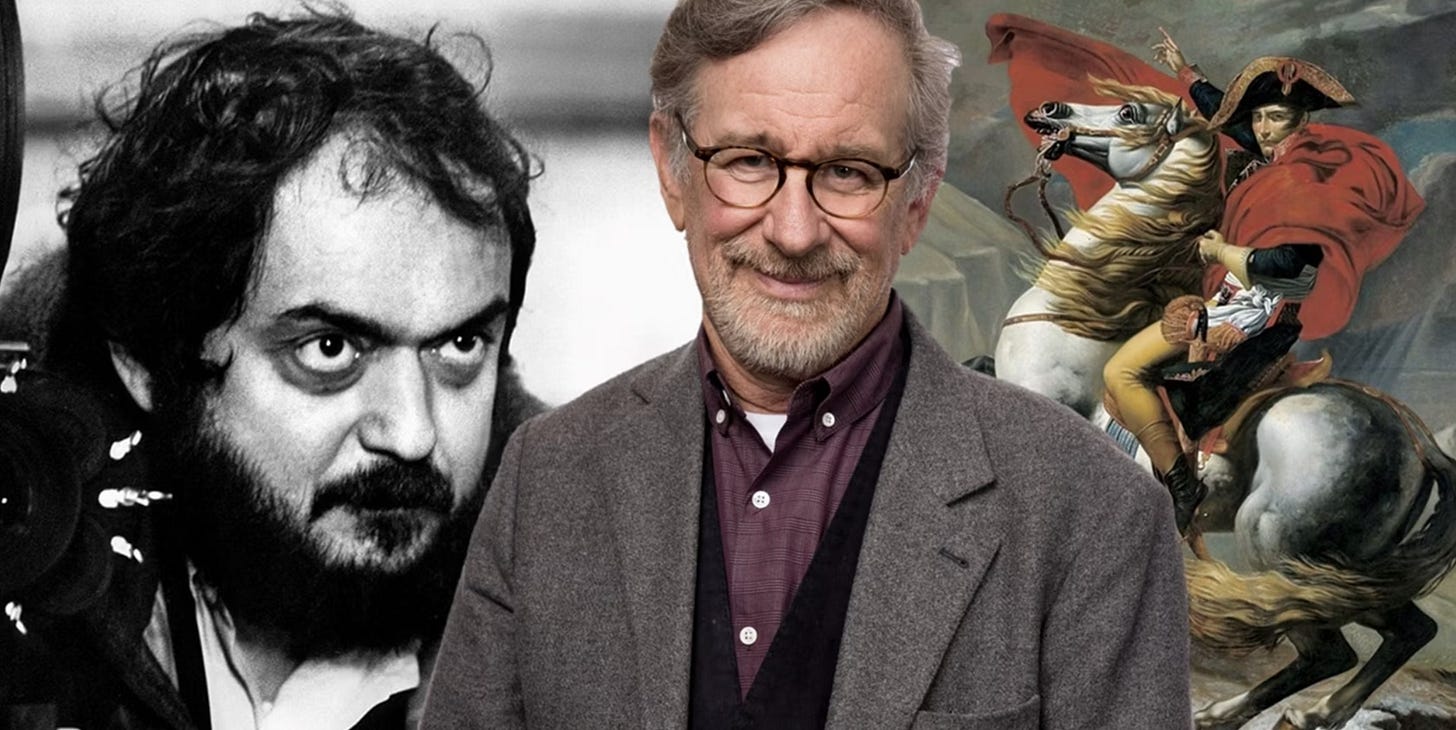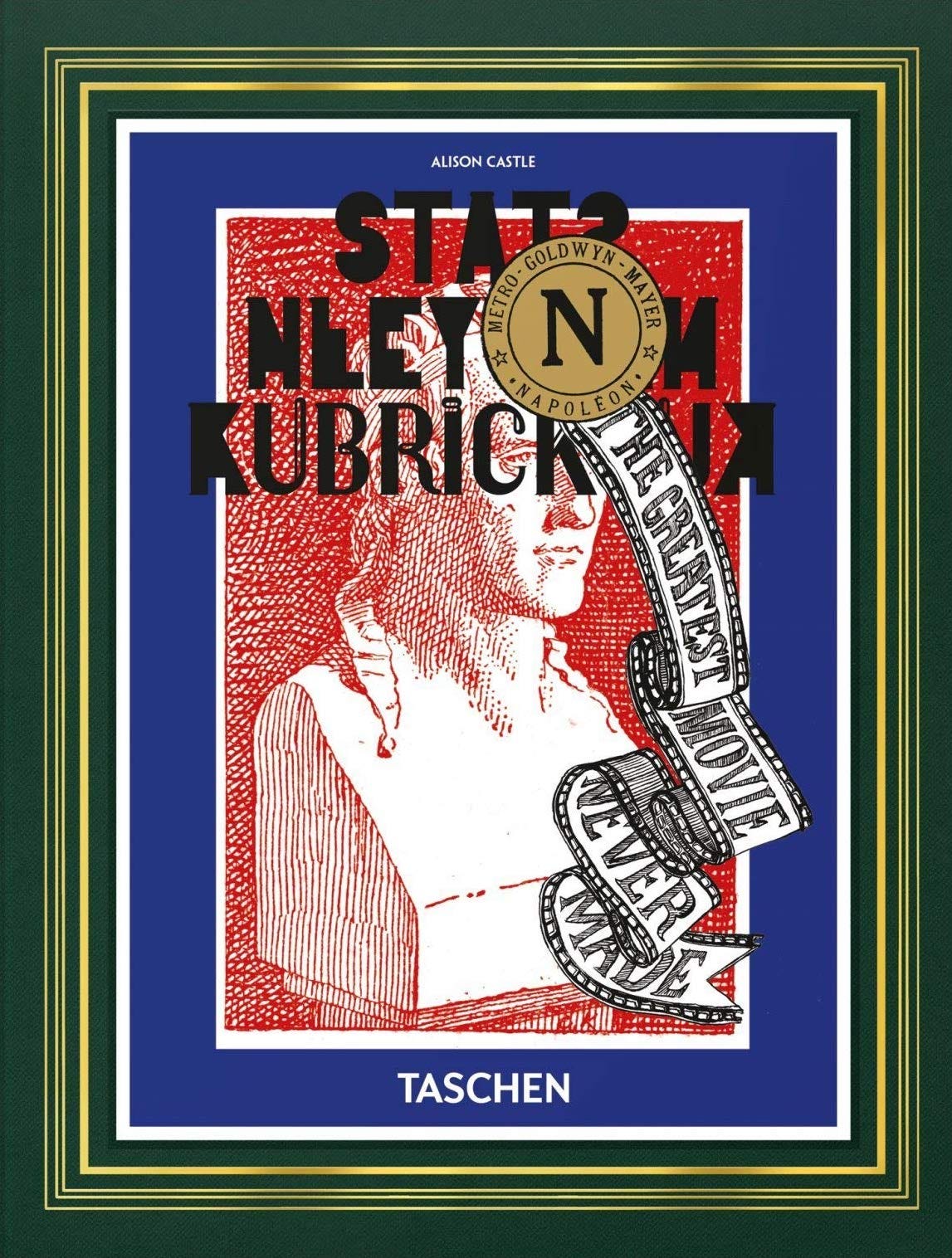Stanley Kubrick's Napoleon ... the greatest movie never made?
Well, now that Scott's Napoleon has come and gone, and with Spielberg working on a seven-part Napoleon miniseries for HBO, I thought it was worth taking another look at the old Kubrick script.
Back in 1968, after completion of "2001: A Space Odyssey", Stanley Kubrick turned to the story of Napoleon with the intent of turning it into a monumental historical costume drama. It never happened - but the script exists and it's definitely worth reading.
Ridley Scott’s Napoleon, starring Joaquin Phoenix, has made, frankly, a minor splash. Appreciated by some, derided by others (particularly the French), it won’t go down in history as one of his best films. Those will forever be Blade Runner, Alien, Gladiator and G.I. Jane (just kidding on that last one, of course! But seriously now, did you know that Ridley Scott had directed that was behind the film that earned Demi Moore the worst actress Razzie Award?).
As it turns out, while Scott picked Napoleon as a project more recently, Steven Spielberg has been, for a decade, involved in bringing Kubrick’s Napoleon to life. Kubrick never managed to tackle his Napoleon project - but it’s long been called “the greatest movie never made.” I actually have hopes for the Spielberg miniseries. Not because of Kubrick’s script, mind you - but because the story will be told in seven parts - giving it the time it needs to tell the multi-faceted story of Napoleon.
To my mind, so far the best retelling of Napoleon’s life came with a 4-part French miniseries produced twenty years ago. It was the kind of work where you think, “Okay, that’s done - no one ever needs to retell this story - it’s as good as can be.” Still, it’ll be Spielberg, it’ll be seven parts, and it’s HBO - so, one may be cautiously hopeful.
Kubrick was a perfectionist, well known to immerse himself completely. In the case of Napoleon, he researched for years, visited locations, hired historians who built up a card catalogue detailing every day of Napoleon's life - who was with him and why, who he ate with, who he slept with and and and. The extent of Kubrick's massive mounds of research is on display in a beautiful and massive book that was published in 2011 - a perfect gift for any film buff (it would also deliver as a murder weapon - with it’s nearly one thousand pages, it weighs about five pounds).
Here's a fascinating notion: Initially, Stanley Kubrick had planned on working with Anthony Burgess (writer of A Clockwork Orange), who tried to bring forward a unique telling of Napoleon's life by following the symphonic structure of Beethoven's Eroica (listen in). Alas, it wasn’t meant to be. Burgess delivered something experimental, not chronological - even comical. Kubrick decided to go his own way and Burgess published “Napoleon Symphony” as a novel in 1974.
Kubrick wrote the screenplay and - being the perfectionist he was - was never satisfied. But what really doomed the project other factors, such as the box office failure of another Napoleon feature, the 1970 Rod Steiger starrer Waterloo, and the expectation that Kubrick’s project, with filming on locations with tens of thousands, would be prohibitively expensive. Essentially, producers were unwilling to take the risk, their fears too big that such a massive costume drama (and a story that had failed to excite movie goers before) would fall flat at the box office.
Now - I have read the script and, especially if you’re a fresh writer, I’d urge you to read it as well. As you read it, try and forget that Stanley Kubrick wrote it. It’s just pages, just words, just a story - it should work on its own. Ask yourself, does it?
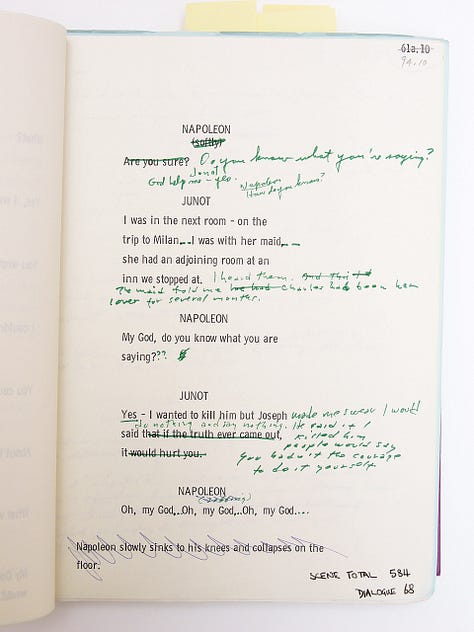
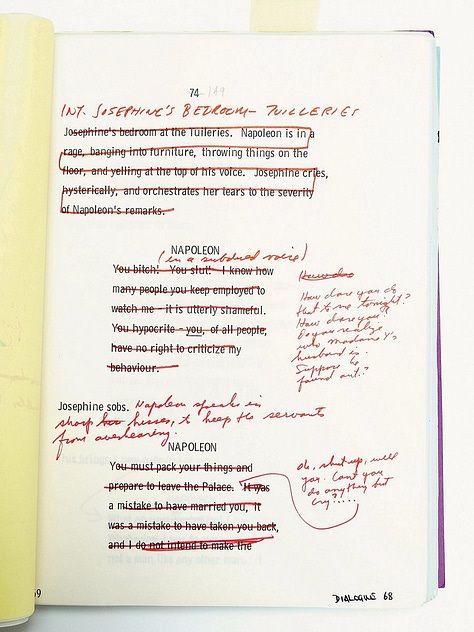
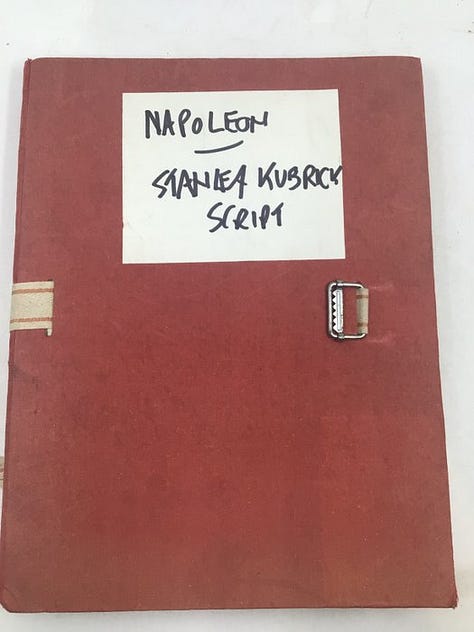
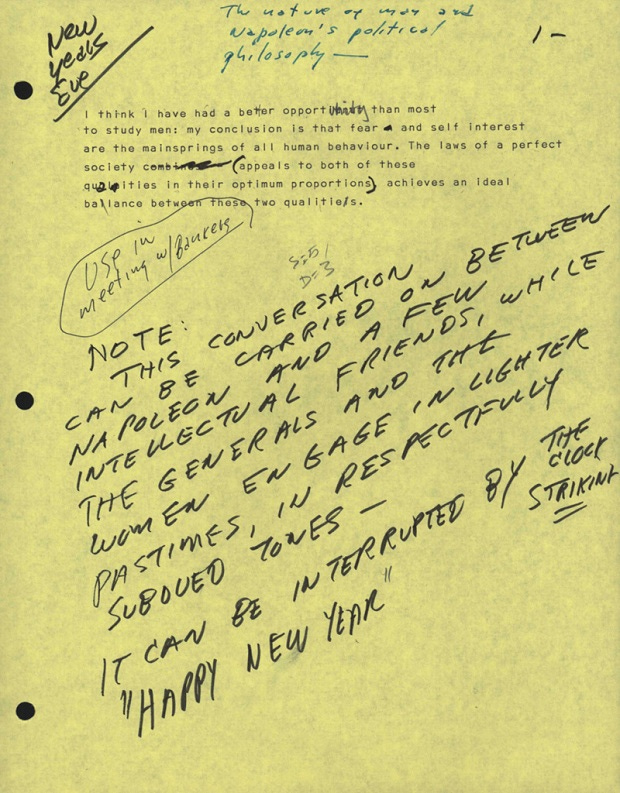
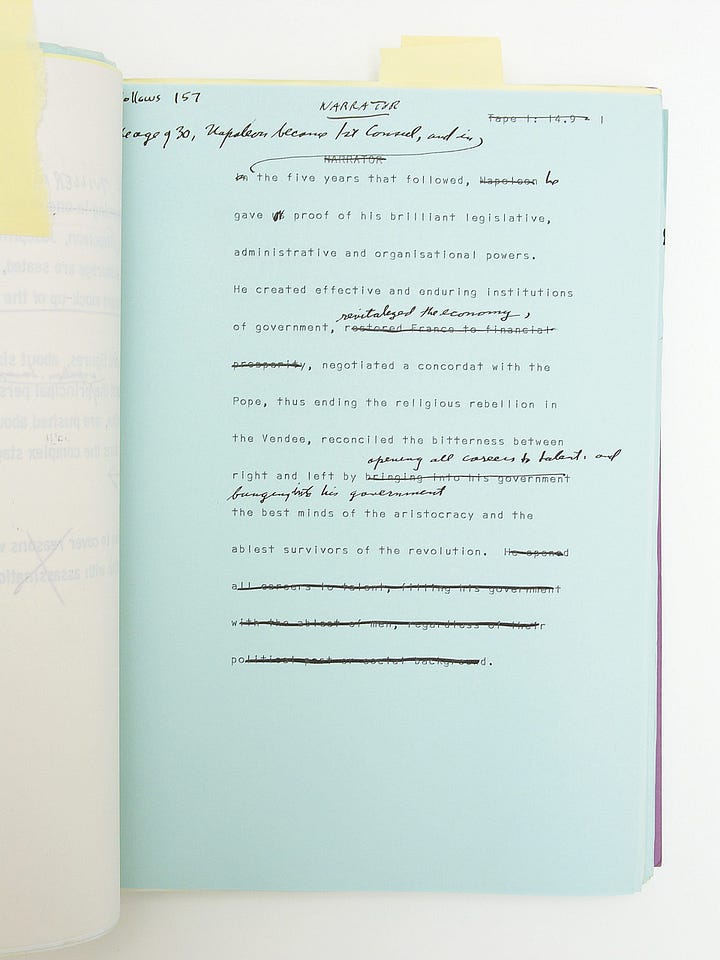
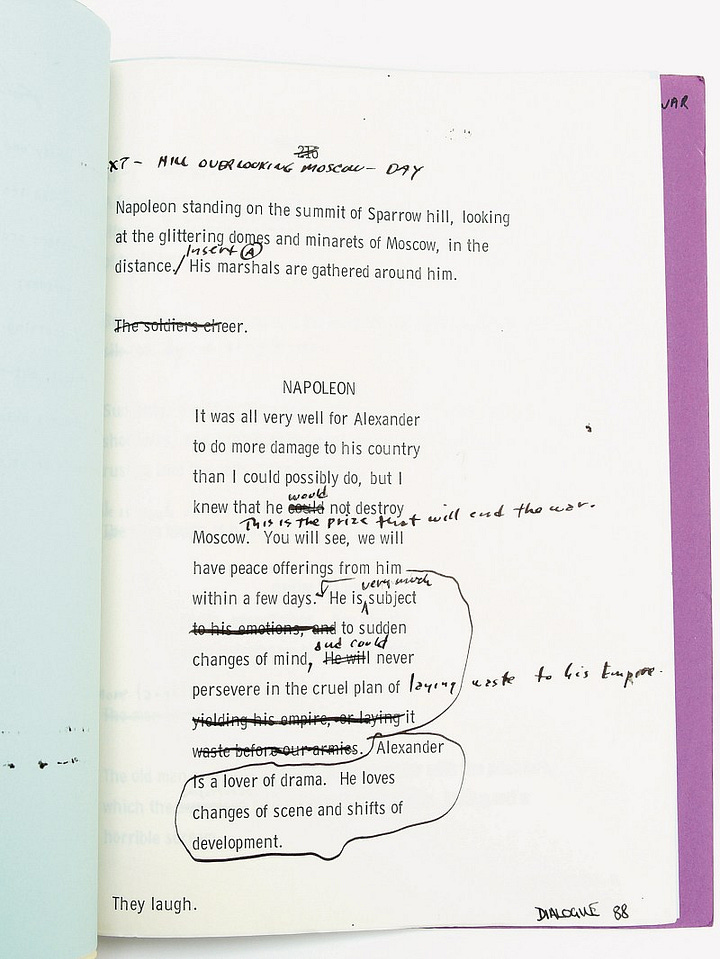
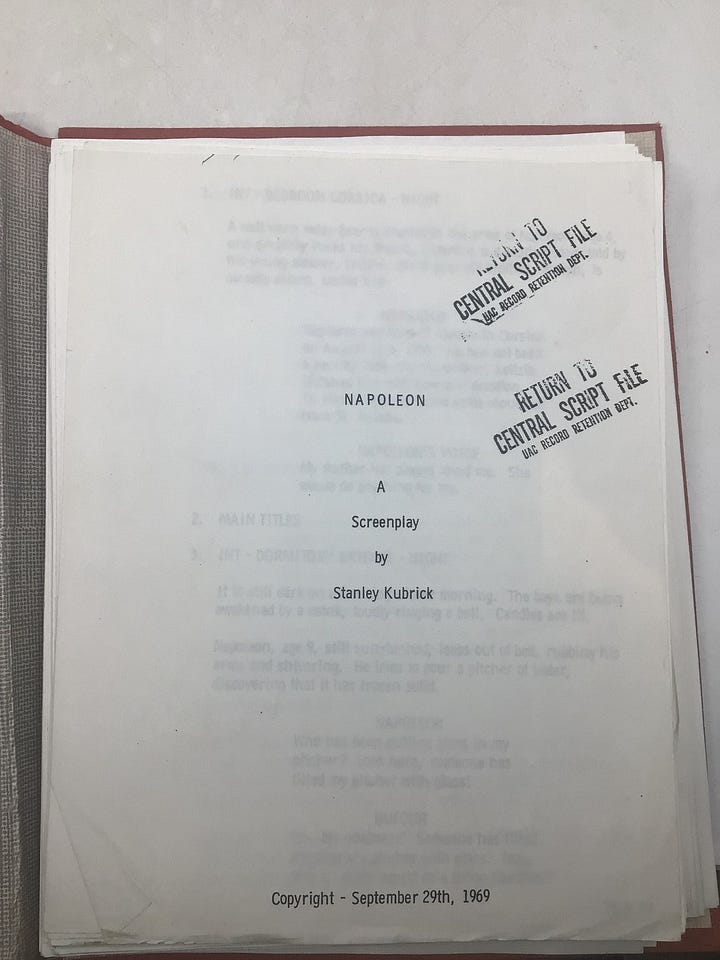
My reading experience was quite interesting. Yes, the story told is about the life of Napoleon and Kubrick depicts it as he had planned, from beginning to end, boyhood to death. Spoiler alert: It definitely is not the greatest movie never made.
The script is well executed, but linear and episodic, strung together with the traditional narrator's voice. A wholly uninspired choice. The scenes are properly executed, i.e. they have clarity of purpose, they exist for a solid reason... but there's nothing that remains in my mind as extraordinary, or surprising beyond what I’d expect from a Napoleon story.
Interesting for fresh writers is also to see that Kubrick breaks quite a few rules that you, as a beginning writer, are told to remember and follow at all times. Fact is, you need to know the rules - and you need to learn that sometimes breaking them can be the perfect thing to do to suck the reader into your script.
Watch this documentary with lots of additional insights. And if the above image intrigues … Yes indeed, Kubrick had planned that none other than Jack Nicholson should portray Napoleon. I have to admit - while I don’t see the need, nor have the desire, to watch yet another take on Napoleon’s life - I would absolutely have loved to see Nicholson as Napoleon. Now that would have been a reason for joyously hopping into that all-too-often told tale one more time.

